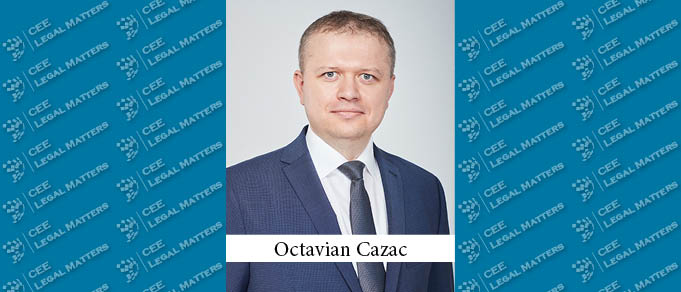The Spring of 2020 brought the pandemic to CEE, with its “perfect storm” of ingredients – including significant legal ramifications. Whether you are an individual, a business, or a governmental official, the storm made you ask at least one of these questions: “What are my rights in pre-existing contract?”, “Am I still bound to pay?”, “Can I get my money back?”, “Will I be liable for this?”, and “What legislation is needed to help ease the impact on the public?”
Disruption of business as usual inevitably means disruption of the legal business as well. There is no longer a beaten path. We have to learn to walk anew.
As a business lawyer I am happy that business law firms in Moldova and elsewhere in CEE (I pay particular attention to firms in neighboring Romania, Ukraine, and Russia) have each made significant contributions to helping the public navigate the legal aspects of this storm.
We have taken full advantage of the digital tools that enable an instant, easy, and free-of-charge flow of ideas. The public – including both the business community and public administration – has flagged issues and raised questions, and the legal community was able to respond quickly with valuable legal assessments.
This is a new sort of pro bono work. We could call it “massive open pro bono” work (similar to already-popular “massive online open courses”), consisting of short-notice Zoom webinars and podcasts, publications, and infographics. This has especially helped SMEs assess their specific situations and decide early on whether to suspend business or adapt and continue – and, regardless, how to handle their workforce and customers.
This new type of work is not only helpful for business communities, but for legal communities as well. Before this crisis, a lawyer would confront a new matter, make his or her own legal assessment, and recommend a strategy to the client. The accuracy and value of that assessment would usually be established over time, and would depend June 2020– in advisory work June 2020– on whether a risk eventually materialized and all went smoothly, or June 2020– in dispute resolution work June 2020– on whether the client prevailed in the litigation or arbitration proceedings. After a few years the lawyer might find out that he or she understood the law incorrectly and cost the client money and stress, or a lawyer might conclude that justice was not served and that the judge or arbitrator wrongfully applied the law to the client’s case.
During the stay-at-home period enacted by authorities across CEE and elsewhere, however, the legal community was actually given time to process many legal questions, discuss them extensively, confront divergent ideas, and find common ground. Similarly, judges and arbitrators got heads-ups on the legal issues to come and were able to observe the discussion within the legal community and even provide early guidance.
I very much welcome this novel phenomenon within the legal community. Because if lawyers fight less among themselves and if clients hear less of “it is uncertain” or “it can go either way,” then we could start defeating Professor Frank Emmert’s observation that “instead of being the cure, laws and lawyers have become part of the disease.”
By Octavian Cazac, Partner, Turcan Cazac
This Article was originally published in Issue 7.5 of the CEE Legal Matters Magazine. If you would like to receive a hard copy of the magazine, you can subscribe here.
